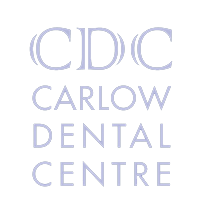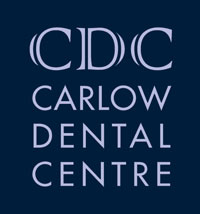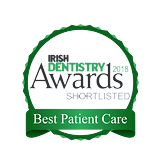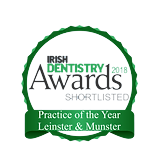FREQUENT ASKED QUESTIONS
Our team are available to answer any questions throughout your dental treatment.
The first dental visit should occur by 12 months of age or within six months of the first tooth appearing. The initial visit usually lasts 30 to 45 minutes. Depending on your child’s age, the visit may include a comprehensive examination of the teeth, jaws, bite, gums, and oral tissues to assess growth and development.
Despite the most favourable of circumstances, baby teeth can become decayed or damaged. While your child will get a “second chance” with their teeth because their damaged baby teeth will eventually fall out, the problems they cause in the meantime make treatment worthwhile.
You can start brushing your baby’s teeth as soon as they start to come through. Brush your child’s teeth with a baby toothbrush and a small amount of fluoride toothpaste. Refrain from being concerned if you cannot brush much at first. The most important thing is to get your baby into the habit of brushing their teeth as part of their daily routine. You can help by leading by example and showing them how you brush your own teeth.
Use a children’s fluoride toothpaste the size of a grain of rice for children aged 3 and under. If they tend to eat or swallow it, you can use a non-fluoride version. For children aged 3 to 6, the amount should be the size of a pea, and they may be ready for adult toothpaste.
Begin developing good oral habits at a young age. Teach children to brush their teeth at least twice a day with fluoride toothpaste and to floss on a regular basis. Take in enough fluoride. Fluoride hardens the enamel, making it more difficult for acid to penetrate.
Early tooth decay is typically identified by white spots (that cannot be removed with brushing) that indicate that the enamel is beginning to deteriorate, which can progress to brown spots on teeth.
Fissure sealants are plastic coatings that are painted on the back teeth grooves. The sealant creates a protective layer that prevents food and bacteria from becoming trapped in the tiny grooves of the teeth and causing decay.
Resin-based fissure sealants should be applied to all children’s permanent molars as soon as possible after eruption.
Children should get fissure sealants as soon as their permanent molars and premolars erupt. This is approximately the age of six.
Most people do not have their child’s dentist’s phone number in their phone, but at times like this, you will realise that it is a good idea. Call the office, explain the situation, and find out if you should come in right away or schedule an appointment.
Some orthodontic problems may be easier and faster to correct if they are identified and treated sooner rather than later, after adult teeth have emerged or facial development is nearly complete. Early or “interceptive” orthodontic treatment is performed while a child’s baby teeth are still present, and options may include either a fixed or removable appliance to move teeth, change jaw position, or hold other teeth in place. It may also be necessary to extract baby teeth in order to promote the eruption of adult teeth.
The answer to the question “how often should I see my dentist?” is dependent on who you are, your health history, age, diet, oral hygiene, and a variety of other factors. Even if you take excellent care of your teeth at home, it is critical for your long-term health to visit your dentist on a regular basis for cleanings and check-ups. There is no substitute for your dental professional’s training and skill.
Hygienists specialise in preventing and preserving the mouth, teeth, and gums. They are critical in detecting and treating early signs of gum disease.
Professional in-chair teeth whitening is the best way to achieve a brighter smile. Whitening treatments and information can be discussed in more detail with one of our reception team who can book you in to be assessed by one of our dentists.
Gather the broken pieces and transport them to the dentist in a clean, dry container. To remove dirt and debris, rinse the remaining tooth with warm water. Make an appointment with your dentist.
It is fashionable to have a small gap between your teeth from time to time; however, most people find a gap between any of their teeth, especially those that show when they smile, to be unattractive. This is a cosmetic dental procedure that only a dentist can perform. In some cases, a gap can be closed by realigning teeth with braces; in others, a treatment such as composite veneers may be required.
You may require orthodontic treatment if you have one of the following issues; Crowded teeth, Gaps In Between Teeth, Bite Issues, Jaw Pain, or Difficulty Chewing or Speaking.
At CDC, we take pride in how we approach and treat our patients. We will welcome you into a safe and relaxed environment, and because we have treated so many patients over the years, we have extensive experience treating nervous patients.
Dental veneers and crowns are both beneficial to your oral health. A dental crown is a restoration typically used to protect and reinforce a tooth, whereas a veneer is used in cosmetic dentistry to change the appearance of a tooth.
At CDC, we have a large dental laboratory where crowns depending on the material used, can be made within one day.
A dental implant is an artificial tooth root that is placed into the jawbone. One or more missing teeth can be replaced when dental work such as a crown, fixed bridge, or a full set of dentures is added.
The treatment coordinator is your point of contact from the beginning to the end of your treatment. The treatment coordinator will answer any questions you have, walk you through your treatment plan, and schedule your appointments.
Gum disease symptoms include bleeding gums when brushing your teeth, flossing, or eating hard foods like apples. Your gums become swollen, red, and painful. Contact us for more information.
There must be enough room for the wisdom tooth to erupt or enter the mouth. An impacted wisdom tooth is one that fails to erupt properly into the mouth and becomes stuck, either under the gum or as it pushes through the gum. If there is enough space in the mouth, the wisdom tooth may not become impacted and will erupt and function normally. People can have problems with both impacted and non-impacted wisdom teeth. Some of these issues can result in symptoms such as pain and swelling; however, other wisdom teeth may not cause any symptoms but still cause problems in the mouth.










